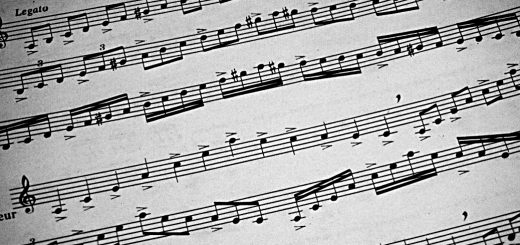Steve Lescarbeau – The Ultimate Trading System

Today’s post is a profile of Guru investor Steve Lescarbeau, who appears in Jack Schwager’s book Stock Market Wizards. His chapter is called The Ultimate Trading System.
Contents
Steve Lescarbeau
Steve Lescarbeau appears in Jack Schwager’s book Stock Market Wizards.
- His chapter is called The Ultimate Trading System.
Steve obviously keeps a low public profile, because I couldn’t find a picture of him.
Trading style
Steve Lescarbeau was / is a mutual fund trader, inspired by Schwager’s interview with Gil Blake that we have covered previously.
- He holds funds while they are going up and switches to cash (or other funds) to avoid downturns.
I do not attempt to prognosticate the market. I react to what happens in the market.
Schwager admits in his introduction that Lescarbeau is paranoid about revealing the details of his system, so I am not optimistic that we will learn much that is directly actionable.
Performance
Over five years of trading (to Schwager’s interview), Lescarbeau had returned 70% pa compounded.
- No year was lower than a 50% gain.
- His worst month was a 3% fall, and he was profitable in 91% of months.
Early career
Lescarbeau’s degree is in chemistry, but he started out as a salesman for a because he wanted to make money.
- He initially sold filtration systems, then later mutual funds.
I think that a physical science degree is as good as if not better than a financial degree because it trains you to be analytical.
If there is anything I am really good at, it’s being a researcher. I’m not a particularly good trader.
After that he became a stockbroker at Lehman’s.
- After meeting some managed futures traders from Commodities Corporation, he decided to move into that area.
- He managed to get one account – Kodak, for $50M.
Next he partnered with a mutual fund newsletter writer, raising money for the newsletter guy to manage.
- They made 9% on $10M in the first year, but the volatility was too much for Lescarbeau.
Building a system
Lescarbeau thought that he could do better on his own, but he didn’t have a trading system.
- Nevertheless he split from his partner.
I knew I would come up with something. I had never failed to succeed at anything that I put my mind to.
The characteristics of being a good trader or investor are very similar to the traits needed for success in general.
You have to be very decisive, extremely disciplined, relatively smart, and above all, totally independent. I have those traits.
[At the start] I didn’t know what I was doing. I did what everyone else does. I looked at a chart, and if it looked strong, I bought it. By March 1995, I had systematized my approach.
I trade several different systems, each based primarily on one indicator.
I hardly spend any time trading. Over 99 percent of my time is spent on the computer, doing research.
There is a reason why I replace trading systems, and the reason is that I have a better idea. I still keep an eye on old trading systems, but I won’t use them.
Funds
I have tested my systems on marketwide funds, and they work well. But I usually prefer to go after a smaller area of the market.
I’m looking for funds that would have a bit more zing on the upside, and the S&P is not zing. Therefore, I’m much more likely to trade something like a technology fund than a broadly diversified fund.
Judgement
Over time I realized that I could combine my systems with my experience. Now my systems tell me what to do, but there is also judgment involved.
This judgment doesn’t necessarily make me more money, but it does reduce my equity swings. I usually err on the side of caution.
There is never any judgment whether to buy or sell; the only judgment is how much to buy or sell.
I might have a system that has been performing extremely well give me a buy signal, but I may decide to take a smaller-than-normal position because other systems are giving me contradictory indications.
I get uncomfortable when my equity line starts going above its long-term uptrend. I am likely to cut back my position size, anticipating that the equity line will come back to the long-term trend.
I might take partial profits on a position, or not go fully long on a buy signal, but I will never hold after a sell signal.
Gil’s system
I can give you an example of something that might not be too distant from what I used to do by describing my perception of Gil Blake’s system. Reading the Gil Blake chapter was a key turning point for me.
Gil’s approach was to follow different sectors, and if on a given day, a sector had both above-average volatility and above-average return, it would be considered a buy signal for that sector fund, or a “green light”.
Then he would hold the long position in that fund until his sell condition was met, which might have been a down day, or the passage of a specific number of days following the buy signal, or some other liquidation condition.
It would probably still work to some degree.
Systems
Systems definitely have a life span. I think it’s because eventually enough people figure it out. When too many people jump on the bandwagon, the market takes it away.
That’s why I would be very skeptical about anyone being able to buy a trading system that worked.
If you develop a system that you have thoroughly tested and truly believe works, don’t tell anyone about it.
I find that the systems that have done the best in the most recent past also tend to do the best in the immediate future. Therefore I tend to lean on the systems that have done the best very recently.
O’Shaughnessy
Another classic example is O’Shaughnessy. His book What Works on Wall Street was terrific; it was well written and well researched. The performance of his funds, however, has been less than stellar.
He tested his strategies all the way back to the early 1950s, but they don’t work. So, even though his strategies worked for over forty years at the time the book was published, they have stopped working in recent years.
Had he not published his book, they might well have continued to work. He should have just managed money and not published his book; of course, if he hadn’t published the book, he probably wouldn’t have raised any money.
If you have a great idea, don’t talk about it.
Outside investors
Lescarbeau trades his own money, with no desire to manage public funds.
I had investors from 1995 through 1997. I did very well for them – I was up 58% in 1995, 50% in 1996, and 60% in 1997.
“By the end of 1997, I was managing about $35 million. It became very difficult to use my style of investment, which involves switching money in and out of mutual funds, because mutual funds don’t like it if you trade more than four times a year
Now I trade a lot less money, and I have it spread out over more than twenty mutual funds.
Investors can be such a pain. They complained that I didn’t make enough money if I wasn’t up at least 4 percent for the month. They complained that I made too much money because they had to pay taxes on the profits.
Some investors didn’t trust me. Because the results were so good, they thought I was making up the numbers and had absconded with their money. They would call my accountant every month.
If the market was up a lot on the day, they would call up and ask, “Are we in the market?” That would drive me crazy. If the market was down a lot, they would call up and ask, “Are we out of the market?”
Poker
I love playing poker. It’s pretty hard to get concerned about losing $200 when you’ve just lost $100,000, but 1 never let my income level interfere with the way I play.
I play to win. If a hand is not a good bet, I get out.
Leverage
Lescarbeau is in the market just over 50% of the time, and is usually less than fully invested even then.
- He uses leverage only selectively, and never beyond 140% invested.
Shorting
Ninety percent of my success is clue to not doing things that are stupid. I don’t sell winners; I don’t hold losers; I don’t get emotionally involved. I do things where the odds are in my favor.
Shorting stocks is dumb because the odds are stacked against you. The stock market has been rising by over 10 percent a year for many decades. Why would you want to go against that trend?
Conclusions
As expected, Lescarbeau didn’t give away any trade secrets, but his approach is low-key inspiring.
Schwager notes his extreme confidence, a trait shared with many successful traders.
An honest assessment of your own confidence level may be the best indicator of your potential for success. If you are confident that you will succeed in the markets then the odds are good that you will.
Confidence cannot be manufactured or wished into existence. You either have it, or you don’t.
He also notes Lescarbeau’s intensity, bordering on obsession, and his discipline.
The essence of discipline is that there are no exceptions.
Many people are attracted to the markets because they think it is an easy way to make a lot of money. Ironically, hard work is one of the key common denominators I have noted among the traders I have interviewed.
Lescarbeau is not a bad trader to try and emulate, even if we don’t quite know how.
Until next time.



